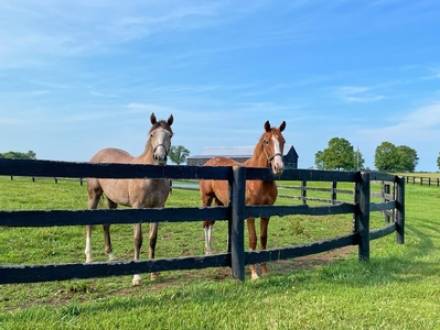Do Illinois Pet Trusts Cover Horses and Farm Animals?
 Although Illinois does have a pet trust statute (760 ILCS 3/408), when most people think of pet trusts, they typically picture the family cat or dog. Pet trusts can go much further than furry house-dwellers. For many owners, horses and other livestock-type animals are much more than property; they are valuable companions, service animals, working animals, or assets tied to family heritage.
Although Illinois does have a pet trust statute (760 ILCS 3/408), when most people think of pet trusts, they typically picture the family cat or dog. Pet trusts can go much further than furry house-dwellers. For many owners, horses and other livestock-type animals are much more than property; they are valuable companions, service animals, working animals, or assets tied to family heritage.
The protections afforded in a pet trust can extend to horses, other livestock (in some cases), service animals, and even exotic animals. A recognized pet trust allows you to set aside money and instructions for the care of your animals after you are gone. If you own valuable horses or show animals, it is vital to plan ahead to ensure they receive proper care, feed, and shelter.
A pet trust can also minimize any potential disputes among your heirs, in the event they differ on their assessment of what should be done with your animals. Whether your animals are sentimental to you or a significant financial investment, consulting with an Oswego, IL estate planning attorney can give you peace of mind.
What Animals Are Covered in a Pet Trust?
While livestock, in general, like cows, sheep, and poultry, would not be covered under a standard Illinois pet trust, the language of the statute states that any "designated domestic or pet animals" can be included in a pet trust. Horses, in particular, are often not only valuable assets, but may be treated much like a beloved dog or cat.
Established case law and legal interpretation could exclude livestock from this category, but on the other hand, an expensive show bull might be considered a "domestic or pet animal." Illinois courts have generally interpreted pet trusts to cover "companion" animals, which might exclude a herd of cows or a flock of sheep, but might not exclude a single cow or sheep that an owner treats like a pet.
Animals that cannot be included in a pet trust are those prohibited for private ownership in Illinois, including lions, tigers, bears, and other wild animals; native Illinois wildlife; and domestic and wild animal hybrids, such as wolf-dogs.
Are There Alternative Ways to Provide for Pets Than a Pet Trust?
You could leave the animal(s) and a sum of money to a designated caregiver in your will; however, this method lacks a formal mechanism for ensuring the funds are used as you intended. You could create a legally binding contract that stipulates the exact level of care required, along with a designated person to care for the animals, and reference the contract in your will.
If you have a large number of animals, it might be more appropriate to fund a non-profit entity for their care. A pet trust leaves funds and property to an individual or entity with specific instructions for the care of your animals. Although the animals are legally considered property, the trust provides enforceable instructions for their care.
How Do You Create a Pet Trust for Horses or Other Pets?
If your pet is a horse, you would first calculate the cost of feeding, grooming, farrier services, stabling, vet care, boarding, etc., then set aside that amount of money to fund the pet trust. You would then choose a caretaker, or trustee, to manage those funds for your pet and have your estate planning attorney prepare a pet trust.
There can be challenges associated with pet trusts, such as valuation disputes (particularly for horses or breeding livestock), the risk of heirs challenging the amount of money set aside, and the necessity of ensuring compliance with zoning and farm property laws.
Contact a Kendall County, IL Trust Lawyer
If you own horses, farm pets, or other nontraditional pets in Illinois, a standard will may not be sufficient to guarantee their care. A highly skilled Oswego, IL estate planning attorney from Loire Krajniak Law, LLC can help ensure your pets are well taken care of after you are gone. Attorney Krajniak can assist you in creating a comprehensive estate plan or represent you in a probate matter. To schedule your free consultation, call 630-448-2406.
 22 Crissey Ave, Suite 100, Geneva, IL 60134
22 Crissey Ave, Suite 100, Geneva, IL 60134 630-448-2406
630-448-2406




